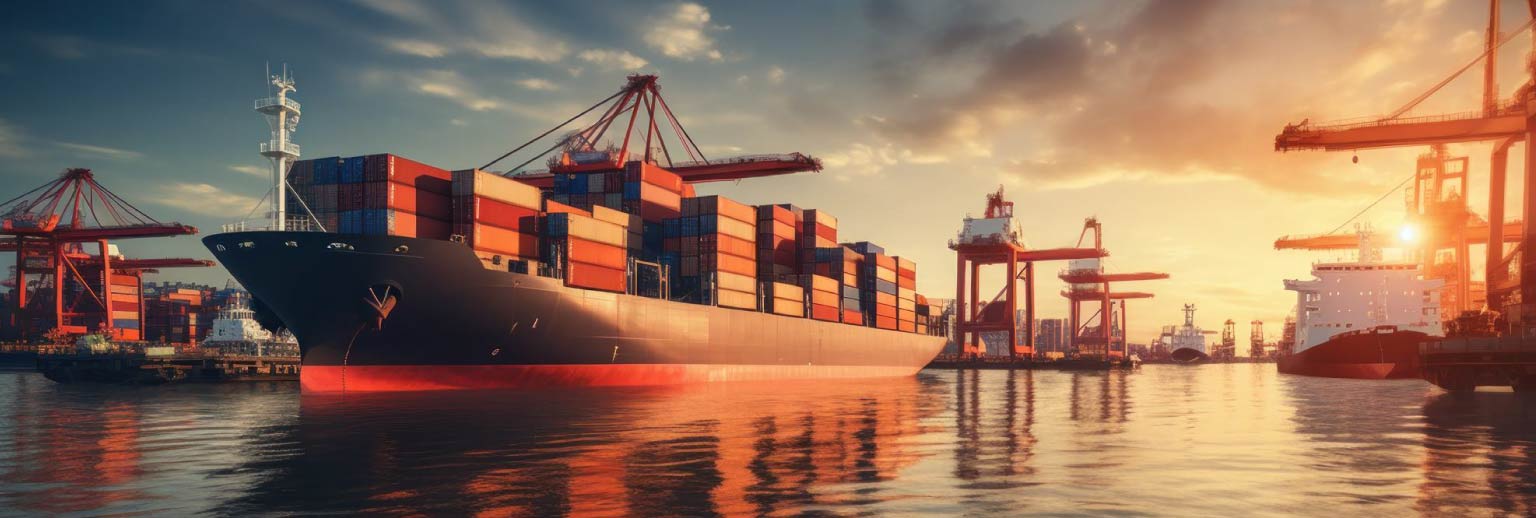
24 Mar Embracing tomorrow: The future of ports with Port Community Systems
The maritime shipping industry is rapidly changing, with ports facing new challenges due to the increasing size of vessels. According to UNCTAD, the average container ship size has risen from 2,000 TEUs in 2000 to over 24,000 TEUs in 2023. Shipping companies are urging ports to enhance infrastructure for better efficiency and cost reduction, particularly in dock clearance and terminal operations.
However, around 30% of global ports have depth and width limitations that restrict access for larger vessels, and conflicts among shipping services can lead to congestion. With only about 10 companies managing 80% of global container shipping capacity, competition is further complicated.
In 2017, the International Maritime Organization introduced the Facilitation Convention, requiring ports to implement a Port Community System (PCS) to streamline operations and potentially reduce turnaround times by up to 20% in competitive markets. And this is anticipated to be the future of innovation in ports. How? Let us explore further.
What is a Port Community System?
A Port Community System (PCS) is a web application that centralizes access to transaction data for various port stakeholders, allowing for efficient cargo and container details tracking. The International Port Community Systems Association (IPCSA) defines PCS as a neutral electronic platform for secure information exchange among public and private stakeholders, enhancing port community competitiveness. Initially focused on port operations, PCS has evolved to connect various participants in the port logistics chain, including importers, exporters, and hinterland ports, supported by organizations like the International Association of Ports and Harbors (IAPH) and the IMO.
The Benefits of Implementing a PCS
Adopting a Port Community System comes with a host of advantages:
-
- Neutrality and Security: The PCS is a neutral platform that enhances data security and confidentiality for all parties involved.
- Added Value: Ports using PCS experience more excellent reliability, improved efficiency, and enhanced transparency and traceability of goods moving through the logistics chain.
- Process Standardisation and Optimisation: PCS standardises processes, simplifying procedures. For instance, the Port of Abu Dhabi reported a 48% reduction in administrative tasks and a 54% decrease in human errors due to PCS implementation.
- Decarbonisation: By streamlining operations, PCS helps reduce travel times and emissions from ships, trucks, and cranes. The Port of Valparaiso, for example, estimates an impressive 83% reduction in CO2 emissions attributed to its PCS.
- Time and Cost Savings: Efficiency gains from PCS lead to shortened shipping, receiving, and data processing times, resulting in quicker decision-making and higher service quality.
- Competitiveness: PCS enhances the port’s competitive positioning by reducing waiting and operational times. Thanks to new PCS functionalities, the Port of Jamaica and Port Klang, achieved a remarkable 5-days reduction in the time it took for import containers to depart.
- Resilience: A robust PCS allows ports to swiftly adapt to disruptive situations, as demonstrated during the COVID-19 pandemic. Ports that had digitised their processes faced fewer challenges in maintaining operational continuity.
The Power of Collaboration
Beyond these tangible benefits, one of the most significant advantages of a PCS is its ability to unify port communities. This collaborative environment builds trust among stakeholders, enabling them to embark on ambitious and comprehensive projects that require multi-organisational participation.
At Kale, we recognise the importance of supporting countries or ports in the early stages of implementing a PCS. We are dedicated to guiding them from initial concept development to detailed design and final implementation, ensuring they are well-equipped to thrive in the modern maritime landscape.
Conclusion
Port Community Systems represent a pivotal innovation for the future of ports. By embracing these technologies, ports improve their operational efficiency and enhance resilience and competitiveness in an ever-changing global market. As we look towards tomorrow, adopting a PCS could be the key to unlocking the full potential of port logistics, fostering collaboration, and driving sustainable growth in the maritime industry.

